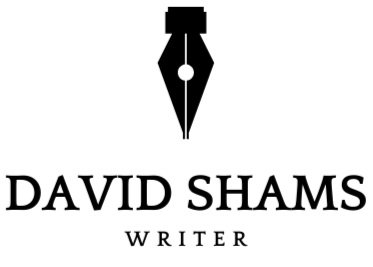There’s Little Joy in the Build-up to Qatar 2022
Will you be watching? (photo credit: History of Soccer)
This was supposed to be an entirely different article. One about the competition between my Iranianness and Americanness. One that described how emotionally torn I felt in the build-up to the match between Sam’s Army and Team Melli on the Tuesday after Thanksgiving.
Tensions between Iran and the United States were always going to provide a ready-made backdrop for the match. One just needs to google US v Iran! It is the same basic backdrop that existed in 1998 when the two countries met in France, but this edition has twenty-four more years of missed opportunities, breakthroughs, and backslides that have led to a cementing of the standoff. That match in 1998 gave us so much promise for a better future. Sports can only do so much.
Today, it’s not just the diplomatic situation between Iran and the US. Adding another layer to the tension around the match is the regime’s relationship with the people it is supposed to govern. Protests have spread through Iran since late September. The spontaneous revolt kicked off after Mahsa Jhina Amini, a 22-year-old Kurdish-Iranian woman, was unjustly killed by Iran’s infamous morality policy. The protests have continued unabated since and for the first time in the regime’s forty-three-year reign, it faces a serious domestic challenge to its stranglehold on power.
I should be excited about the match and under normal circumstances, I would be. But as the day approaches, I find myself overcome with a sense of melancholia. A sense that the intersection we’ve come to in this moment is fraught with more pitfalls and impending doom than previous ones.
It comes from the context I write about above, but also from the very nature of this edition of the World Cup itself. There are very real questions about the competition now, what it means in the footballing world, and whether or not its cultural significance has irrevocably changed because of the way this edition—and the previous two—was awarded and organized.
My own emotional connection to the World Cup comes from watching the Italian version in 1990. Commercial breaks during match play, grainy feeds, and Roger Milla nearly leading the Indomitable Lions to an improbable appearance in the semifinals. As an 8-year-old, I was hooked. My heart given up to the beautiful game before I even knew the meaning of love.
Thirty-two years later, I find myself unable to get excited about the world’s biggest sporting event. The crown jewel in any four-year sporting cycle. Bigger than March Madness. Bigger than the Olympics. Bigger than the Super Bowl. Bigger than the Champions League Final. But, the context surrounding this edition of the World Cup seems to have seeped into a sporting event meant as a temporary salve for society’s troubles.
I started writing this on the day of a mid-term election that carried more weight than folks likely realized. It was a bi-election that could have hammered further nails into the coffin of American Democracy. Then there’s the obvious, the relationship between Iran and the United States, both places where my roots run deep, remains fraught with tension. The domestic situation inside Iran has never been great, but today many Iranians remain in the streets protesting for not just the most basic of freedoms but for something unimaginable just seven months ago–regime change.
All of this is almost too much to bear, especially if we believe, as Musa Okwonga, a British author and podcaster, writes, that the World Cup is supposed to be about escapism: a momentary pause in the monotony of life, a glimmer of hope and excitement, a quickened heartbeat full of emotion.
“Every football fan will have their own different emotional connection with the World Cup, but the one thing that I believe that it offers all of us is escapism: where, for one whole month, we are able to distract ourselves from many of the planet’s problems by immersing ourselves in its supreme drama. This time around, though, the World Cup offers no escape: the global woe is to be found in Qatar itself,” writes Okwonga.
The context surrounding this edition of the World Cup doesn’t seem to care about our search for an escape.
And maybe, the time, the placement of this edition, out of necessity, smashed between holidays and college football, instead of standing alone in the mid-summer period of relaxing vacations has added to the sentiments as well.
I grew up on the USMNT–Tab Ramos, Tony Meola, Claudio Reyna, Earnie Stewart. The team we see today and the growth in the game domestically owe a tremendous amount to the group of mostly amateurs who showed up and tried their best in Italy. Today’s team is filled with superstars, some plying their trade for European powerhouses.
Team Melli scratches a different itch. It’s one of the few ways I can consume my Iranianness and not be at a tremendous disadvantage. While I don’t speak Persian, which makes it difficult to latch on to other aspects of the culture–poetry, politics, music–I do speak the language of the beautiful game, affording me entry into the tent without feeling like an interloper.
To be clear, the Tuesday after Thanksgiving was always going to be a day filled with emotions for me. When a team I follow has a match, I live every detail. What happens, though, when I follow both teams? How do I watch? With whom? What result is acceptable? Will I, like my father in the 98 World Cup, play it cool until someone scores the winner?
What happens when the context meant to provide for a momentary escape forces us to look head-on into the abyss? Will we, out of tradition, watch anyway? Or will we find new ways to escape the doldrums of life?
But here’s the thing. Regardless of all that handwringing and pearl clutching, we all know I’m still going to watch—and so will you. Because, like life, football is messy. Isn’t that why we love it?


